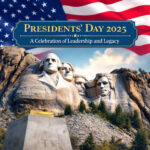Presidents’ Day, celebrated on the third Monday of February each year, is a federal holiday in the United States that honors the legacy of all U.S. presidents, past and present. As we approach Presidents’ Day 2025, it’s a perfect time to reflect on the significance of this day and the contributions of our nation’s leaders. This comprehensive guide will explore the origins of Presidents’ Day, its evolution, and the various ways it is celebrated across the country. We will also delve into the impact of presidential leadership, notable presidents, and the future of the presidency.
The Origin of Presidents’ Day
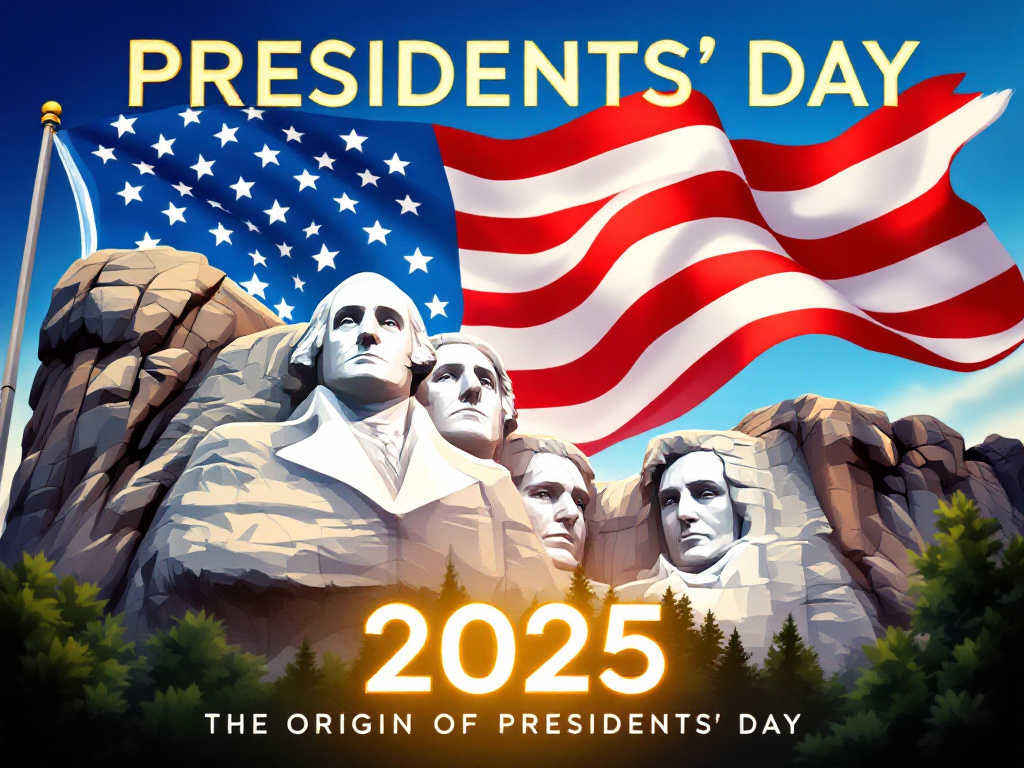
Presidents’ Day was originally established to celebrate the birthday of George Washington, the first President of the United States. Over time, it has evolved to honor all presidents, with a particular focus on Washington and Abraham Lincoln, whose birthdays are both in February. The holiday is a reminder of the enduring impact of presidential leadership on the country’s history and future.
Evolution of the Holiday
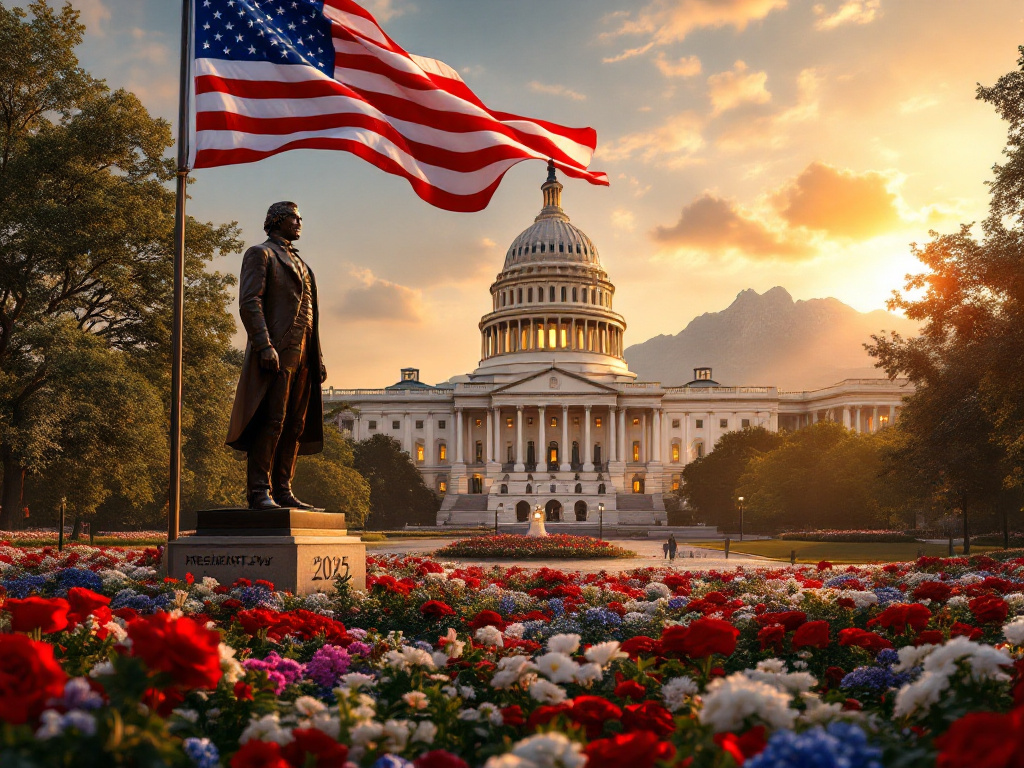
The origins of Presidents’ Day can be traced back to the late 18th century when the birthday of George Washington was celebrated as a day of remembrance. In 1885, Washington’s Birthday became a federal holiday. However, in the late 1960s, the Uniform Monday Holiday Act moved the holiday to the third Monday of February to create more three-day weekends for federal employees. This change also led to the holiday being popularly known as Presidents’ Day, encompassing the celebration of all presidents.
Significance of the Date
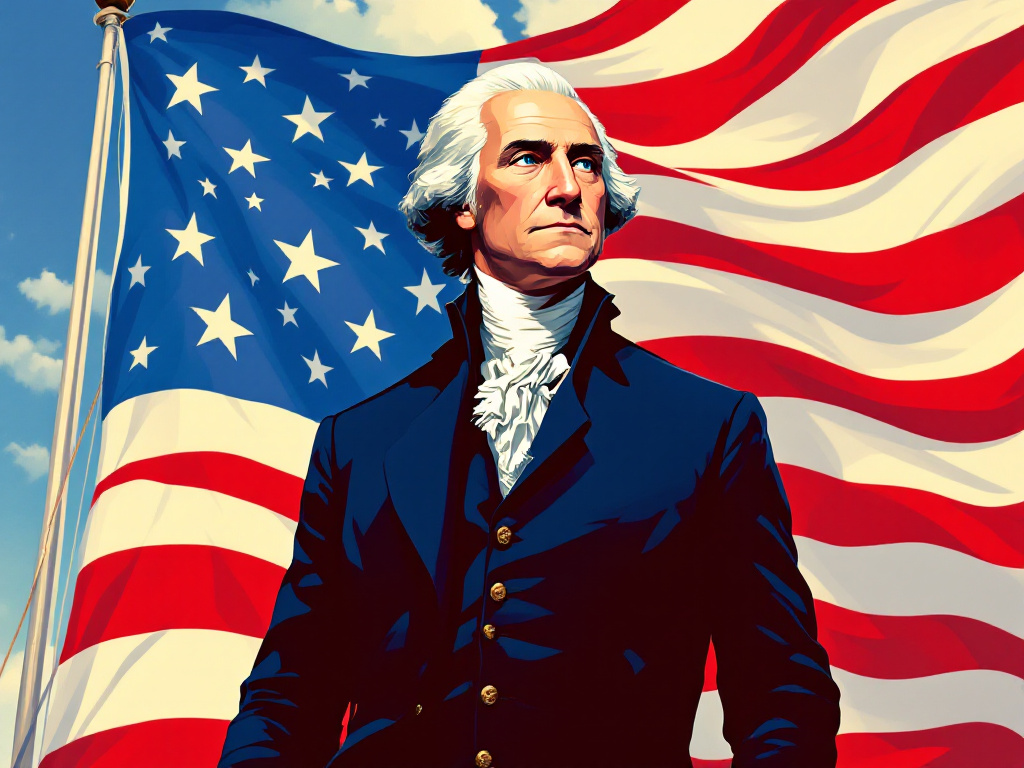
The third Monday of February was chosen as a compromise between Washington’s birthday (February 22) and Lincoln’s birthday (February 12). This date allows for a more inclusive celebration of both presidents and all others who have served in the highest office. The significance of this date is reflected in various commemorations and educational activities that take place nationwide.
Celebrating Presidents’ Day 2025
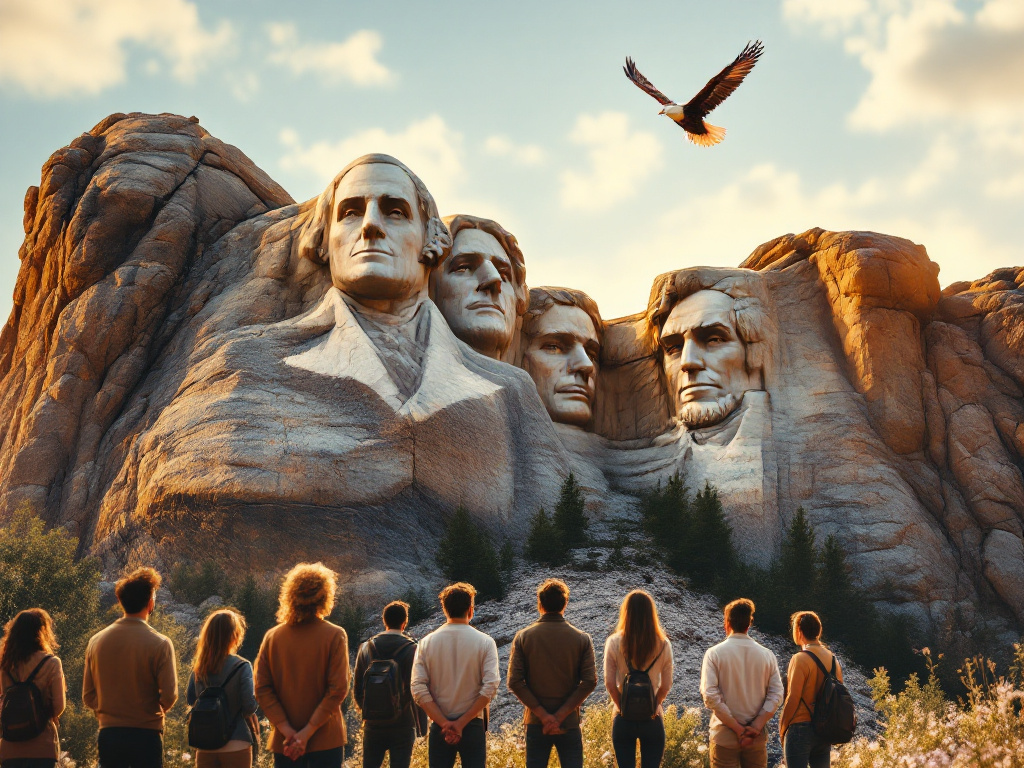
In 2025, Presidents’ Day falls on February 17th. This day is marked by various celebrations and commemorations across the nation. Schools often use this opportunity to educate students about the roles and responsibilities of the presidency, while many communities host events and parades to honor the legacy of our leaders.
Educational Activities

Educational institutions play a significant role in celebrating Presidents’ Day 2025. Teachers and educators use this day to engage students in activities that highlight the contributions of various presidents. Lessons may include:
Historical Presentations
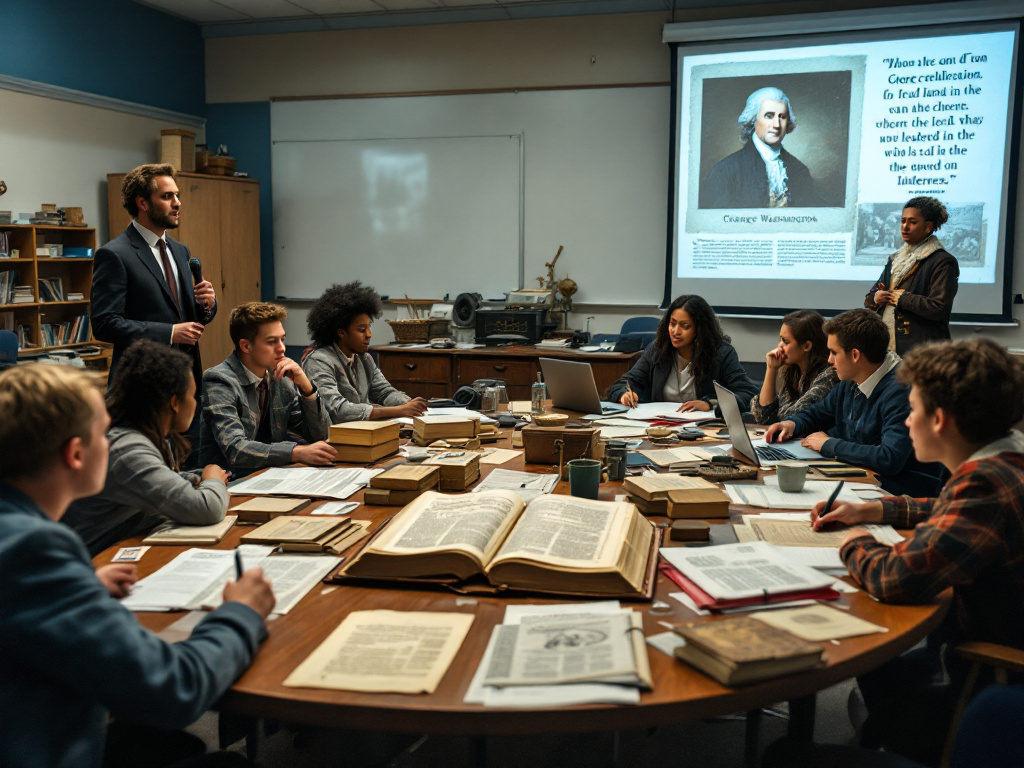
Students can give presentations on different presidents, focusing on their achievements and challenges. Resources like the Library of Congress and the National Archives provide valuable materials for these presentations. This activity encourages students to research and understand the historical context of each presidency.
Interactive Workshops
Hands-on activities like creating timelines or writing essays about presidential policies. The National Constitution Center offers interactive exhibits and educational resources. These workshops help students engage with history in a more interactive and meaningful way.
Field Trips
Visits to historical sites and museums, such as the Smithsonian National Museum of American History, to learn more about presidential artifacts and history. Field trips provide students with firsthand experiences and a deeper understanding of the presidency.
Debates and Discussions
Organizing debates and discussions on the impact of various presidential policies and decisions. This can help students understand the complexities of leadership and decision-making. Debates encourage critical thinking and the ability to argue different perspectives.
Art and Creative Projects
Encouraging students to create art, posters, or multimedia projects that highlight the lives and achievements of different presidents. Art projects allow students to express their creativity while learning about history.
Community Events
Communities across the country organize various events to celebrate Presidents’ Day 2025. These events include:
Parades and Ceremonies
Many cities host parades and ceremonies to honor the presidents. These events often feature speeches by local leaders and performances by school bands and choirs. The National Park Service often hosts events at historic sites. Parades and ceremonies bring communities together to celebrate and honor the legacy of the presidency.
Historical Reenactments
Some communities organize historical reenactments to bring the stories of past presidents to life. The Colonial Williamsburg foundation is known for its immersive historical experiences. Reenactments provide a unique and engaging way to learn about history.
Volunteer Activities
Encouraging community service and volunteerism in honor of the presidents’ dedication to public service. Organizations like AmeriCorps and the Peace Corps offer volunteer opportunities. Volunteer activities promote a sense of community and civic responsibility.
Community Gatherings
Hosting community gatherings and potlucks where neighbors can come together to celebrate and discuss the significance of Presidents’ Day 2025. Community gatherings foster a sense of unity and shared purpose.
Local Exhibitions
Setting up local exhibitions and displays that showcase the history and achievements of various presidents. Libraries and community centers often host such exhibitions. Local exhibitions provide an opportunity for community members to learn about the presidency in a local context.
The Impact of Presidential Leadership
Presidents’ Day 2025 is also a time to reflect on the impact of presidential leadership on the nation. From George Washington’s establishment of the presidential role to Abraham Lincoln’s guidance through the Civil War, each president has left a unique mark on the country.
Notable Presidents
George Washington
Known as the “Father of His Country,” Washington set the precedent for the presidential role and helped shape the nation’s early policies. His leadership during the American Revolution and his role in drafting the Constitution are particularly notable. Washington’s legacy includes his commitment to the principles of democracy and his vision for a united nation.
Abraham Lincoln
Lincoln’s leadership during the Civil War and his role in abolishing slavery make him one of the most revered presidents in history. His Gettysburg Address is a timeless speech that continues to inspire. Lincoln’s legacy includes his commitment to equality and his vision for a reunited nation.
Franklin D. Roosevelt
FDR’s leadership during the Great Depression and World War II had a profound impact on the nation’s recovery and global standing. His New Deal policies reshaped the American economy. FDR’s legacy includes his commitment to social welfare and his vision for a more equitable society.
Thomas Jefferson
Jefferson’s authorship of the Declaration of Independence and his role in the Louisiana Purchase expanded the nation’s territory and influence. Jefferson’s legacy includes his commitment to the principles of liberty and his vision for a expanding nation.
Theodore Roosevelt
Known for his conservation efforts and trust-busting policies, Theodore Roosevelt’s presidency marked a period of significant reform. His establishment of national parks, such as Yellowstone, is a lasting legacy. Theodore Roosevelt’s legacy includes his commitment to environmental conservation and his vision for a more just society.
John F. Kennedy
Kennedy’s presidency was marked by the Cuban Missile Crisis and the Space Race. His assassination in 1963 shocked the nation and the world. Kennedy’s legacy includes his commitment to innovation and his vision for a more technologically advanced nation.
Ronald Reagan
Reagan’s presidency saw the end of the Cold War and the fall of the Berlin Wall. His economic policies, known as Reaganomics, had a significant impact on the nation’s economy. Reagan’s legacy includes his commitment to economic growth and his vision for a more prosperous nation.
Barack Obama
Obama’s presidency saw the passage of the Affordable Care Act and the Paris Agreement on climate change. His administration also oversaw the withdrawal of U.S. troops from Iraq. Obama’s legacy includes his commitment to healthcare reform and his vision for a more sustainable future.
Joe Biden
Biden’s presidency has focused on addressing the COVID-19 pandemic, economic recovery, and climate change. His administration has also worked to restore alliances and address global challenges. Biden’s legacy includes his commitment to public health and his vision for a more resilient nation.
Current and Future Leadership
As we celebrate Presidents’ Day 2025, it’s also important to look at the current leadership and the future of the presidency. The role of the president continues to evolve, with new challenges and opportunities arising each year. The current president’s initiatives and policies will shape the nation’s future, and it’s essential to stay informed about these developments.
Economic Policy
The president’s economic policies, such as tax reforms and trade agreements, have a direct impact on the nation’s financial health. Organizations like the Federal Reserve and the U.S. Department of the Treasury play crucial roles in economic policy. Economic policy is a critical area where presidential leadership can have a significant impact on the nation’s prosperity.
Foreign Policy
The president’s foreign policy decisions, including diplomatic relations and military actions, shape the nation’s global standing. The U.S. Department of State and the U.S. Department of Defense are key players in foreign policy. Foreign policy is essential for maintaining the nation’s security and promoting its interests abroad.
Social Policy
Issues such as healthcare, education, and social welfare are addressed through the president’s social policies. The U.S. Department of Health and Human Services and the U.S. Department of Education are instrumental in implementing these policies. Social policy is crucial for addressing the needs of the nation’s citizens and promoting social justice.
Environmental Policy
The president’s environmental policies, including climate change initiatives and conservation efforts, are crucial for the nation’s sustainability. The Environmental Protection Agency and the U.S. Department of the Interior play key roles in environmental policy. Environmental policy is essential for protecting the nation’s natural resources and ensuring a sustainable future.
Technological Advancements
The president’s policies on technological advancements, including cybersecurity and innovation, are essential for the nation’s competitiveness. The National Science Foundation and the U.S. Department of Commerce are instrumental in promoting technological progress. Technological advancements are crucial for driving economic growth and improving the quality of life for all citizens.
Historical Context and Legacy
Understanding the historical context of the presidency is essential for appreciating the legacy of our leaders. Each president has faced unique challenges and opportunities that have shaped their tenure and the nation’s history.
Founding Fathers and Early Presidents
The founding fathers, including George Washington, John Adams, and Thomas Jefferson, laid the groundwork for the presidency and the nation’s governance. Their leadership during the formative years of the United States set the stage for future presidents.
John Adams
As the second president, Adams continued the work of establishing the new nation. His presidency was marked by the XYZ Affair and the Alien and Sedition Acts. Adams’ legacy includes his commitment to the principles of democracy and his vision for a strong and united nation.
Thomas Jefferson
Jefferson’s presidency saw the Louisiana Purchase and the Lewis and Clark Expedition, which expanded the nation’s territory and knowledge. Jefferson’s legacy includes his commitment to the principles of liberty and his vision for an expanding nation.
James Madison
Known as the “Father of the Constitution,” Madison’s presidency was marked by the War of 1812 and the establishment of the Second Bank of the United States. Madison’s legacy includes his commitment to the principles of democracy and his vision for a strong and united nation.
James Monroe
Monroe’s presidency is known for the Monroe Doctrine, which asserted U.S. influence in the Western Hemisphere and warned European powers against further colonization. Monroe’s legacy includes his commitment to the principles of democracy and his vision for a strong and united nation.
Civil War and Reconstruction
The Civil War and the subsequent Reconstruction era were pivotal moments in the nation’s history. Abraham Lincoln’s leadership during this time is particularly notable for his role in preserving the Union and abolishing slavery.
Abraham Lincoln
Lincoln’s Emancipation Proclamation and his support for the 13th Amendment were crucial steps in ending slavery. Lincoln’s legacy includes his commitment to equality and his vision for a reunited nation.
Ulysses S. Grant
As the 18th president, Grant oversaw the Reconstruction era and worked to enforce civil rights for newly freed slaves. His presidency was marked by efforts to rebuild the South and integrate former slaves into society. Grant’s legacy includes his commitment to equality and his vision for a reunited nation.
Rutherford B. Hayes
Hayes’ presidency saw the end of Reconstruction and the withdrawal of federal troops from the South. His administration focused on civil service reform and the settlement of the Great Railroad Strike of 1877. Hayes’ legacy includes his commitment to equality and his vision for a reunited nation.
20th Century Presidents
The 20th century saw significant changes in the role of the presidency, with presidents facing global conflicts, economic crises, and social movements.
Woodrow Wilson
Wilson’s leadership during World War I and his role in establishing the League of Nations had a lasting impact on global politics. Wilson’s legacy includes his commitment to international cooperation and his vision for a more peaceful world.
Franklin D. Roosevelt
FDR’s New Deal policies helped the nation recover from the Great Depression, and his leadership during World War II was instrumental in the Allied victory. FDR’s legacy includes his commitment to social welfare and his vision for a more equitable society.
Harry S. Truman
Truman’s decision to use atomic bombs on Japan ended World War II and ushered in the nuclear age. His presidency also saw the beginning of the Cold War and the establishment of the NATO. Truman’s legacy includes his commitment to national security and his vision for a more peaceful world.
Dwight D. Eisenhower
Eisenhower’s leadership during the Korean War and his role in establishing the interstate highway system had a lasting impact on the nation. Eisenhower’s legacy includes his commitment to national security and his vision for a more prosperous nation.
John F. Kennedy
Kennedy’s presidency was marked by the Cuban Missile Crisis and the Space Race. His assassination in 1963 shocked the nation and the world. Kennedy’s legacy includes his commitment to innovation and his vision for a more technologically advanced nation.
Lyndon B. Johnson
LBJ’s presidency saw the passage of the Civil Rights Act of 1964 and the Voting Rights Act of 1965, which were crucial steps in the civil rights movement. LBJ’s legacy includes his commitment to equality and his vision for a more just society.
Richard Nixon
Nixon’s presidency was marked by the Vietnam War and the Watergate scandal, which led to his resignation. Nixon’s legacy includes his commitment to national security and his vision for a more peaceful world.
Gerald Ford
Ford’s presidency was marked by his pardon of Richard Nixon and his efforts to heal the nation after the Watergate scandal. His administration also faced economic challenges and the end of the Vietnam War. Ford’s legacy includes his commitment to national unity and his vision for a more prosperous nation.
Jimmy Carter
Carter’s presidency saw the Camp David Accords, which led to a peace treaty between Egypt and Israel. His administration also faced the Iran hostage crisis. Carter’s legacy includes his commitment to international cooperation and his vision for a more peaceful world.
Ronald Reagan
Reagan’s presidency saw the end of the Cold War and the fall of the Berlin Wall. His economic policies, known as Reaganomics, had a significant impact on the nation’s economy. Reagan’s legacy includes his commitment to economic growth and his vision for a more prosperous nation.
George H.W. Bush
Bush’s presidency saw the Gulf War and the fall of the Soviet Union. His administration also played a key role in the reunification of Germany. Bush’s legacy includes his commitment to national security and his vision for a more peaceful world.
Bill Clinton
Clinton’s presidency saw a period of economic prosperity and the passage of the North American Free Trade Agreement (NAFTA). His administration also faced the impeachment process due to the Lewinsky scandal. Clinton’s legacy includes his commitment to economic growth and his vision for a more prosperous nation.
George W. Bush
Bush’s presidency was marked by the 9/11 attacks and the subsequent War on Terror. His administration also faced the 2008 financial crisis. Bush’s legacy includes his commitment to national security and his vision for a more peaceful world.
Barack Obama
Obama’s presidency saw the passage of the Affordable Care Act and the Paris Agreement on climate change. His administration also oversaw the withdrawal of U.S. troops from Iraq. Obama’s legacy includes his commitment to healthcare reform and his vision for a more sustainable future.
21st Century Presidents
The 21st century has brought new challenges and opportunities for the presidency, with issues such as terrorism, economic recessions, and global climate change taking center stage.
Donald Trump
Trump’s presidency was marked by controversial policies such as the travel ban and the construction of a border wall. His administration also faced the COVID-19 pandemic. Trump’s legacy includes his commitment to national security and his vision for a more prosperous nation.
Joe Biden
Biden’s presidency has focused on addressing the COVID-19 pandemic, economic recovery, and climate change. His administration has also worked to restore alliances and address global challenges. Biden’s legacy includes his commitment to public health and his vision for a more resilient nation.
Reflections on Leadership
As we reflect on the legacy of our presidents, it’s important to consider the qualities that make a great leader. Presidents’ Day 2025 is an opportunity to appreciate the contributions of our leaders and to think about the future of leadership in the United States.
Qualities of Great Leaders
- Vision: Great leaders have a clear vision for the future and the ability to inspire others to work towards that vision. Presidents like Abraham Lincoln and Franklin D. Roosevelt had a vision for a better future and worked tirelessly to achieve it.
- Courage: Leadership often requires making difficult decisions and standing up for what is right, even in the face of opposition. Presidents like George Washington and John F. Kennedy demonstrated courage in their leadership.
- Integrity: Integrity is essential for building trust and credibility. Presidents like Thomas Jefferson and Barack Obama were known for their integrity and commitment to ethical leadership.
- Adaptability: The ability to adapt to changing circumstances and challenges is crucial for effective leadership. Presidents like Theodore Roosevelt and Ronald Reagan demonstrated adaptability in their leadership.
- Empathy: Great leaders understand the needs and concerns of the people they serve. Presidents like Lyndon B. Johnson and Bill Clinton were known for their empathy and commitment to social justice.
Lessons from the Past
The legacy of our presidents offers valuable lessons for the future of leadership in the United States. By studying the successes and failures of past presidents, we can gain insights into what makes a great leader and how to address the challenges of the future.
- Learning from Success: The achievements of presidents like Abraham Lincoln, Franklin D. Roosevelt, and Ronald Reagan offer lessons in visionary leadership, courage, and adaptability. Their successes demonstrate the importance of having a clear vision, making difficult decisions, and adapting to changing circumstances.
- Learning from Failure: The failures of presidents like Richard Nixon and George W. Bush offer lessons in the importance of integrity, ethical leadership, and the consequences of poor decision-making. Their experiences demonstrate the need for transparency, accountability, and a commitment to ethical standards.
Looking to the Future
As we celebrate Presidents’ Day 2025, it’s important to look to the future of leadership in the United States. The challenges of the 21st century require a new generation of leaders who are prepared to address issues like climate change, economic inequality, and global conflicts.
- Innovation and Technology: The future of leadership will require innovation and the use of technology to address complex challenges. Presidents will need to be at the forefront of technological advancements and use them to improve the lives of all Americans.
- Global Cooperation: In an increasingly interconnected world, the future of leadership will require global cooperation and diplomacy. Presidents will need to work with other nations to address global challenges and promote peace and stability.
- Social Justice: The future of leadership will require a commitment to social justice and equality. Presidents will need to address issues like economic inequality, racial injustice, and gender discrimination to create a more just and equitable society.
- Sustainability: The future of leadership will require a commitment to sustainability and the protection of the environment. Presidents will need to address climate change and promote policies that protect the planet for future generations.
More About Presidents’ Day 2025
Presidents’ Day is a federal holiday in the United States celebrated on the third Monday of February. It honors all U.S. presidents, past and present, but is particularly associated with the birthdays of George Washington and Abraham Lincoln. Many schools, banks, and federal offices are closed on this day, and various events and sales are held to commemorate the occasion. This year, Presidents’ Day 2025 will be celebrated with great enthusiasm across the country.
Presidents’ Day 2025 falls on Monday, February 17. It is a federal holiday, which means that federal offices, including the post office, are typically closed, and federal employees have the day off. Many schools are also closed on Presidents’ Day 2025, but this can vary by district, so it’s best to check with your local school district for specific information. Most banks are closed on Presidents’ Day 2025, as it is a federal holiday. However, some branches may have limited hours or be open in retail locations, so plan your banking needs accordingly.
Common activities for Presidents’ Day 2025 include visiting historical sites and museums related to U.S. presidents, attending parades and ceremonies, and shopping, as many retailers offer special sales. Educational activities and lessons about U.S. presidents are also popular in schools. Specific events for Presidents’ Day 2025 will vary by location, so check local listings for parades, ceremonies, and special events in your area.
Presidents’ Day originated as a celebration of George Washington’s birthday on February 22. In the late 1960s, the holiday was moved to the third Monday of February as part of the Uniform Monday Holiday Act. It has since evolved to honor all U.S. presidents, making Presidents’ Day 2025 a day to reflect on the leadership and contributions of all who have held the office. The holiday is celebrated in various ways, including public ceremonies and parades, educational programs in schools, special exhibits in museums, and retail sales and promotions.
Many retailers offer significant sales and discounts on Presidents’ Day 2025. These sales often include electronics, appliances, furniture, and clothing. Some fun facts about Presidents’ Day 2025 include that the holiday was originally known as Washington’s Birthday, it is one of the eleven federal holidays recognized by the U.S. government, and the date can fall anywhere between February 15 and February 21. You can honor Presidents’ Day 2025 by learning about the lives and achievements of U.S. presidents, visiting historical sites and museums, participating in local events and ceremonies, and reflecting on the importance of leadership and public service.
While Presidents’ Day 2025 is often associated with George Washington’s birthday, it has evolved to honor all U.S. presidents. Some states still refer to the holiday as Washington’s Birthday. Traditions for Presidents’ Day 2025 include attending public ceremonies and parades, visiting presidential libraries and museums, participating in educational activities about U.S. presidents, and shopping during special sales. To find Presidents’ Day 2025 events near you, check local newspapers, community websites, and event listings, as many cities and towns host special events and activities.
You can teach your kids about Presidents’ Day 2025 by reading books about U.S. presidents, visiting historical sites and museums, participating in educational activities and crafts related to the holiday, and discussing the importance of leadership and public service. Some fun crafts and activities for kids include making presidential portraits or silhouettes, creating a timeline of U.S. presidents, writing letters to the president, and hosting a mock election or debate. There are many movies and documentaries about U.S. presidents that you can watch to learn more about their lives and achievements, including popular options like “Lincoln,” “JFK,” and various documentaries on streaming platforms.
While there are no specific Presidents’ Day 2025 recipes, you can celebrate with traditional American dishes like apple pie, cherry pie (in honor of George Washington), and other patriotic treats. You can volunteer on Presidents’ Day 2025 by participating in community service projects, helping at local historical sites or museums, and joining volunteer efforts related to education and public service. Some famous quotes related to Presidents’ Day 2025 include: “The harder the conflict, the greater the triumph.” – George Washington, “A house divided against itself cannot stand.” – Abraham Lincoln, and “Ask not what your country can do for you, ask what you can do for your country.” – John F. Kennedy.
There are many Presidents’ Day 2025 memes that circulate on social media, often featuring humorous takes on U.S. presidents and the holiday itself. Some light-hearted jokes for Presidents’ Day 2025 include: Why did George Washington have trouble sleeping? Because he couldn’t lie. Why did Abraham Lincoln go to the theater? Because he couldn’t resist a good play. You can celebrate Presidents’ Day 2025 at home by watching movies or documentaries about U.S. presidents, reading books about presidential history, cooking traditional American dishes, and participating in online educational activities and crafts.
There are many podcasts that discuss U.S. presidents and their legacies, including popular options like “Presidential,” “The Dollop,” and “Slow Burn,” which can be enjoyed during Presidents’ Day 2025. Some great books for kids for Presidents’ Day 2025 include “A Picture Book of George Washington” by David A. Adler, “Abe Lincoln: The Boy Who Loved Books” by Kay Winters, and “So You Want to Be President?” by Judith St. George. You can celebrate Presidents’ Day 2025 with your family by visiting historical sites and museums together, participating in local events and ceremonies, engaging in educational activities and crafts, and enjoying a family meal with traditional American dishes.
Conclusion
Presidents’ Day 2025 is a time to honor the legacy of our nation’s leaders and reflect on the impact of presidential leadership. Whether through educational activities, community events, or personal reflection, this day offers an opportunity to appreciate the contributions of our presidents and look forward to the future of the United States. By studying the successes and failures of past presidents, we can gain insights into what makes a great leader and how to address the challenges of the future. As we celebrate this important holiday, let us remember the qualities that make a great leader and strive to embody those qualities in our own lives.
For more information on Presidents’ Day 2025 and the history of the U.S. presidency, visit the White House Historical Association website.
Presidents’ Day 2025 FAQ
What is Presidents’ Day 2025?
Presidents’ Day 2025 is a federal holiday in the United States celebrated on the third Monday of February. In 2025, it falls on February 17th. This holiday honors all U.S. presidents, particularly George Washington and Abraham Lincoln.
Why is Presidents’ Day celebrated?
Presidents’ Day is celebrated to honor the birthdays of George Washington, the first president of the United States, and Abraham Lincoln, who led the country during the Civil War. Over time, it has become a day to recognize the contributions of all U.S. presidents.
Is Presidents’ Day a federal holiday?
Yes, Presidents’ Day is a federal holiday in the United States. This means that federal government offices, schools, and many businesses are closed in observance of the day.
When is Presidents’ Day in 2025?
Presidents’ Day in 2025 will be observed on Monday, February 17th.
Do all states observe Presidents’ Day?
While Presidents’ Day is a federal holiday, not all states observe it under the same name or with the same emphasis. Some states may have different names for the holiday, such as “Washington’s Birthday” or “Washington and Lincoln Day.”
What is the history of Presidents’ Day?
Presidents’ Day originally began as a celebration of George Washington’s birthday on February 22nd. In 1971, the Uniform Monday Holiday Act moved the celebration to the third Monday of February, creating a long weekend for workers and merging the observance with Abraham Lincoln’s birthday, which falls on February 12th.
How do people celebrate Presidents’ Day?
People celebrate Presidents’ Day in various ways, including visiting historical sites, museums, and memorials dedicated to U.S. presidents. Many retailers also hold special sales and promotions during the Presidents’ Day weekend.
Are banks open on Presidents’ Day?
Most banks are closed on Presidents’ Day, as it is a federal holiday. However, some bank branches inside grocery stores or other retail outlets may remain open.
Are schools open on Presidents’ Day?
Most schools are closed on Presidents’ Day, although this can vary depending on the school district. It’s best to check with local schools to confirm their holiday schedule.
Are post offices open on Presidents’ Day?
No, post offices are closed on Presidents’ Day, and there is no regular mail delivery.
Does Presidents’ Day affect public transportation?
Public transportation systems may operate on a reduced or holiday schedule on Presidents’ Day. It’s advisable to check with local transit authorities for specific details.
What are some activities to do on Presidents’ Day?
On Presidents’ Day, you can:
- Visit presidential libraries and museums.
- Explore historical landmarks related to U.S. presidents.
- Attend local parades or community events.
- Take advantage of shopping deals and sales.
- Educate children about the history and contributions of U.S. presidents.
Is there a special significance to Presidents’ Day sales?
Presidents’ Day sales are a common occurrence, as retailers use the long weekend to offer discounts and promotions. It’s a popular time for consumers to shop for furniture, appliances, electronics, and clothing.
How is Presidents’ Day observed in schools?
In schools, Presidents’ Day may be observed through special lessons, activities, and discussions about the lives and contributions of U.S. presidents, particularly Washington and Lincoln. Some schools may also hold assemblies or events related to the holiday.
Can you travel on Presidents’ Day?
Yes, you can travel on Presidents’ Day. However, since it is a long weekend, travel destinations, especially those with historical significance, may be busier than usual. It’s recommended to plan ahead and make reservations if necessary.
Are government offices open on Presidents’ Day?
Most government offices, including the DMV and federal courts, are closed on Presidents’ Day.
What is the significance of Presidents’ Day in American culture?
Presidents’ Day holds significance in American culture as a day to reflect on the leadership and legacy of U.S. presidents. It is an opportunity to learn more about the history of the presidency and the individuals who have shaped the nation’s history.
Are libraries open on Presidents’ Day?
Many public libraries are closed on Presidents’ Day, but this can vary by location. It’s best to check with your local library for their holiday hours.
Is Presidents’ Day the same as Washington’s Birthday?
Yes, Presidents’ Day is also known as Washington’s Birthday, which was the original name of the holiday when it was established to honor George Washington’s birthday.
How did Presidents’ Day become a holiday?
Presidents’ Day became a holiday through the Uniform Monday Holiday Act of 1971, which aimed to provide more three-day weekends for the nation’s workers by celebrating certain holidays on Mondays. This act combined the observance of Washington’s Birthday and Lincoln’s Birthday into one holiday.
Read More
Baby Items List With Pictures And Names
Michael Jackson’s Earth Song Lyrics: A Deep Dive into Its Meaning and Impact
48 Best Love Song Lyrics that Tell a Timeless Story
Recommended
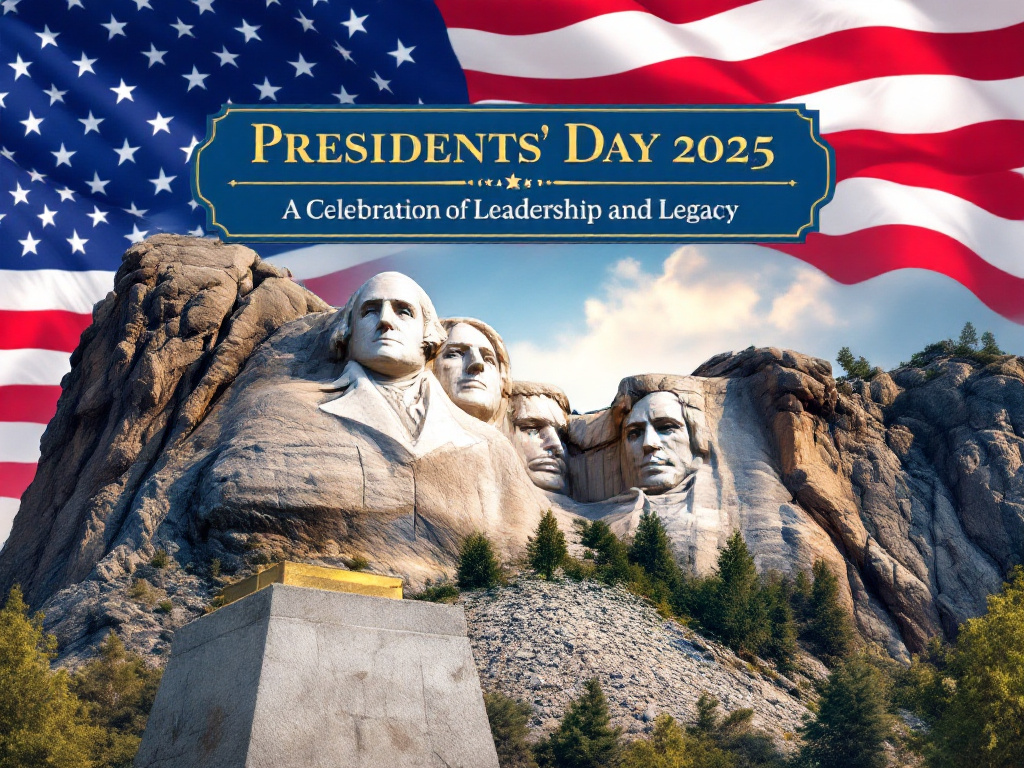
Presidents’ Day 2025: A Celebration of Leadership and Legacy

Unique Baby Names 2025: Perfect Names For Baby Girl and Baby Boy

Michael Jackson’s Earth Song Lyrics: A Deep Dive into Its Meaning and Impact

The 50 Most Popular Love Songs on Streaming Platforms

The Bear Hulu: Everything You Need to Know Before Watching

Pedro Pascal Movies and TV Shows 2024

Volcano Writing – a free AI writing assistant launched by ByteDance | AI toolset 2024

The Best Movies of the Year 2024

Happier Song Lyrics: A Deep Dive into the Meaning and Emotion

